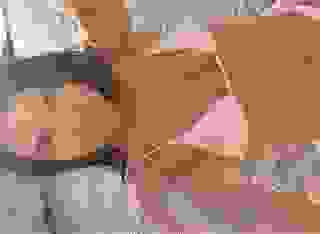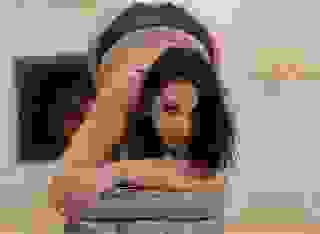Note: You can change font size, font face, and turn on dark mode by clicking the "A" icon tab in the Story Info Box.
You can temporarily switch back to a Classic Literotica® experience during our ongoing public Beta testing. Please consider leaving feedback on issues you experience or suggest improvements.
Click here"Well, hello again. Good to see you."
"Hello," came it's deep, crackling reply. He shook his head, but remembered reading once that Belugas, almost like canaries, enjoyed mimicking human speech -- and he laughed a little, then smiled.
With his suited hand out of the water, he pointed at the mountains. "Yes, hello. Many hellos there, over there," he said, nodding and pointing.
"Hello, there," the whale said, nodding it's face just like he had.
"I don't suppose you'd care to take me there, would you?"
The whale slipped beneath the water and was gone; he turned and saw that all of them had left and he felt vaguely sad. "Well, worth a try, I guess." He looked around, got his bearings and resumed kicking again. The stars were fainter now, the sun finishing it's quick surrender --
And the whale surfaced by his side again, sliding alongside gently, and he looked at the animal, and they looked at one another, then he saw the animal's pectoral fin. The whale was holding it up -- as if offering the fin to him -- so he reached out and grabbed hold as best he could -- and the whale started swimming to the northeast.
It was difficult.
His suited hand couldn't grip the whale's slick skin and he kept sliding free, but the animal always waited for him to catch-up and take hold again. He looked at the mountains -- getting closer, he saw -- and for the first time in days he felt real hope.
The whale stopped after what had to have been several hours, and the two of them bobbed there, breathing hard. He pulled out a granola bar and took a bite, and he looked at the whale.
"Want some?"
The whale moved close again, and opened it's mouth. He dropped the bar on it's tongue, then reached in and grabbed another. He took another small bite, then put the remaining fragment on the whale's tongue and they sat there a while longer, resting, before resuming their trek.
Then the sun was setting, and they rested again. The whale was breathing very hard now, and it rolled from time to time, expelling huge blasts, trying to cool down, and they ate the last of the granola bars in silence a little later -- then the whale simply disappeared. He turned in the sudden silence, bereft, searching for the creature, but it was gone.
His head fell to his chest a few minutes later, and he cried.
He turned, thought he could see city lights through a thin haze, guessed he was looking at Nuuk and that it was maybe five miles away, so he leaned back and started kicking.
And then the whale was by his side, a salmon in it's mouth. The whale held the fish close and he took it, peeled a sliver of the briny flesh free and ate it. Then he ate another, and another, before sliding the remains into his friend's mouth.
"Here, you finish it -- you're the one doing all the work," he said, and he watched the whale swallow the salmon, then he swam close and leaned his face against the whale's. He heard the animal's breathing, it's beating heart -- how like my own, he thought -- and he tried to put his arms around the beast, but it was too large for that. He pushed away after a moment and they looked at one another again, then he nodded.
"Hello," he said, "just over there."
The whale looked away, then back.
"Can you do it, my friend?"
The whale rolled and offered it's fin, and he grasped the moment and held on tight to this new truth.
Some time later he saw a wharf ahead, and rescue crews. Bright lights, too bright, he thought, then he saw a news crew on the wharf, and his son was standing there, talking to a reporter.
Then the lights and cameras were pointing at -- him -- and the whale. There was a sudden commotion on land, then all grew quiet as the whale pushed him into the waiting arms of people gathered by the sea. Before he was pulled from the sea he turned to his friend and whispered, and soon he was surrounded by the once familiar, and as he reached for his phone he wondered what was real, and what was left -- but illusion.
IV
She tried to lay still, to not squirm, but she'd always been troubled by tight, enclosed spaces, and this tube seemed oppressively close -- even confining -- right now. Maybe 'confined' was a good word, too. She felt confined, like her ability to choose was fading. This wasn't a tube, she sighed...no, these are the bars on my cell.
"Hold your breath," a woman's mechanical voice said, and she held it -- again. The machine whirred and rattled, then the voice returned. "You can take a deep breath now."
She tried to imagine sitting on a beach, maybe with a margarita in one hand and Bill in the other, then the voice returned. "Hold your breath," it said, and she felt herself trembling as she went deeper inside the tube. "You can take a deep breath now."
It seemed to go on forever and ever, this holding the breath thing, and she realized she'd been holding her breath for hours, ever since Bill palpated the pain in her belly. She couldn't think of beaches now, not now, and suddenly the idea of drinking a margarita seemed faintly ludicrous.
It was like she'd crossed a line in the sand. On one side there was 'normal' -- and all that meant, and all that used to be -- while beyond, on the other side of the line, there was no such thing as normal anymore. Normal had simply disappeared in the time since the line appeared, and she wanted to jump back to the other side now -- make all this other nonsense go away. She'd never had a choice in the matter, after all. One moment life was normal, then the line appeared, and it was like some unseen force had shoved her across, pushing 'normal' from her grasp.
"The lab work's pretty conclusive, Norma," her internist said, "but let's run you down for a CT, then we'll talk."
Pretty conclusive labs, she repeated, for pancreatic adenocarcinoma. Now that, she thought, was a real line in the sand. Hard and deep, with no way back to normal.
Because she knew the score, she'd been to medical school, she'd been a family practitioner for almost thirty years, and now, out of the blue, she knew what form her death would take. It was almost a relief, she thought as the machine hummed away -- and maybe it was the 'not knowing' that made the idea of death so hard to take.
The motorized tray reversed, then ratcheted along the track and slid back into the dim light. She watched the tech come in, tried to ignore the pain when the girl took the IV out of her wrist, then helped her sit up -- yet she could tell by looking at the expression in the girl's eyes just what the imaging had revealed.
Not that there had ever been any doubt. She knew, too.
She knew, she just knew -- like so many of her patients over the years just knew. "I woke up this morning and felt this lump and I just know it's cancer." How many times had she heard that? And how many times had her patients been wrong? Discounting the hypochondriacs, who seemed to 'catch cancer' several times a year, not very many.
When that line in the sand appears, it's pretty clear. She'd always listened when patients talked to her like that, and now she understood why. It's real, she sighed. They knew. And now I know, too.
She pulled on her clothes, slipped on her shoes, then walked out into the room; an orderly was waiting with a wheelchair and without a word between them she just sat, and with her head down he pushed her to the elevators. They rode up in silence, a couple of people got in and looked at her -- knowingly, she thought -- a little too knowingly -- then he rolled her in to her old group's office.
The orderly pushed her into an exam room and helped her into a chair, and he looked at her. "Thanks," she said.
"You used to work here, didn't you?" he asked.
"Yes. I retired last year."
"I remember -- Doc Edsel. You saw my son, diagnosed his leukemia."
She looked into the man's eyes and remembered. "Tom," she said. "Tommy Deaton. Yes, I remember. How's he doing?"
"Real good, doc. I always wanted to come up and thank you, you know, for all you did."
She nodded her head. "I'm glad he's doing well. How are you doing? I remember it was touch and go there for a while."
"I keep on the meds and I do okay."
"Good." He was manic-depressive, had gotten in trouble and been hospitalized a few times, but he'd met someone and had his act together now.
"Well, I gotta go. Take care."
"You too." She sat and looked at the charts on the wall, the cutaway diagrams of the gut that would have looked obscene anywhere but inside a room like this, and she sighed.
A girl half her age -- short, fat and all too melancholy -- walked into the room.
"Dr Edsel? I'm Patty Goldstein, from Oncology," the girl said, holding out her hand.
Edsel looked at the hand, then took it. "Nice to meet you."
Just got the report from radiology, and it looks like there's agreement between the labs and imaging. She pulled out an iPad and linked it to the display on the wall, and the pertinent images popped up on the screen. She looked at them for a moment, until recognition washed over her and she had to look away. Anywhere but at those images, she said, nausea washing over her.
"Looks like the primary site is in the pancreas, but it looks like it's in the retroperitoneal nodes, too, and throughout the gut. I'd say it has definitely moved into the liver, maybe into the spine. Dr Epstein felt some swelling in your axial nodes this morning, and in your neck, so I'd guess it's in your lungs too."
"Swell. So, what's the bad news?"
Goldstein smiled, looked her in the eye. "Can you tell me, well, how you'd like me to approach this?"
Norma leaned back, sighed as she looked at the ceiling. "Bill and I are packing today, going on a cruise tomorrow. The Northwest Passage. Polar bears and whales, oh my."
Goldstein put her iPad down. "That sounds really fun -- fascinating too, but fun. Are you a photographer?"
"I always wanted to, never did, but I've bought all kinds of equipment."
"Got a good telephoto?"
Edsel nodded. "A 400 2.8. An a 2x teleconverter. We're supposed to go on a polar bear safari, too," she said, laughing at the ridiculousness of the idea.
"That'll do it. I'd recommend really good coats, I guess. And I can write you what you'll need for pain."
Edsel nodded her head. "Do you ever think about it? Death, I mean. And if anything comes after?"
Goldstein leaned back in her chair, then she sighed. "Every time I have a conversation like this, yes, I do."
"And?"
The girl shrugged. "I don't know what to think anymore. I used to be agnostic about it, and maybe I still am, too, but I don't know anymore. I really don't -- know."
"What made you change your mind?"
"I don't know that any one thing did. I just can't believe that all this suffering is without purpose."
"Purpose?"
"I know. It sounds kind of silly.
"How long have you been practicing?"
"Two years. Well, it will be two next May."
"It never gets easier," Norma said, and the girl nodded her head.
"I know."
"Well, good luck to you," Edsel said.
"Yes, you too. Where should I call in the scripts, by the way. Downstairs okay?"
"That'll be fine."
"So, have a good trip. I'd like to see the images, when you get back."
"Thanks. Yes, I'll give you a call."
V
His name was Chanming Chung, and he was a very happy man. Life is indeed infinite, he thought, so much joy if one could only embrace it. He was flying the left seat today, from Hamburg to Hong Kong, in one of Cathay Pacific's new 747-8 freighters. Tons of automobile parts bound for BMW and Mercedes dealerships throughout southeast China, and while he didn't mind flying cargo he longed to return to passenger operations.
He had been co-pilot on a flight to Boston more than a decade ago, and the captain had botched the landing, landed long in heavy snow and almost run off the end of the runway. Rattled, the captain had missed the turn-off and run into deep, snow-covered mud. The runway had been closed, and it took almost a day to dig the 777 out of the muck. And while it hadn't been his fault, not directly anyway, he had been chastised for not helping his captain more effectively. He wasn't fired, but he had been moved to cargo operations, and he had felt humiliated by the move.
Now, well, yesterday he corrected himself, he'd received word he was going back to passenger operations, and that he would report for training -- in France, no less -- for conversion to type training on the new Airbus A350. He thought of the future again and he smiled. 'Forever bright,' he repeated, as he always did at times like this, the meaning behind his name.
Chanming looked out the cockpit to the sea of forest below; the 747 was about to cross into China from Siberia, and he looked at the FMS display, saw they had about five hours to go before starting the approach into Hong Kong's Chek Lap Kok International Airport. He motored the seat back and stood, went to the bathroom and then to the little galley. He poured a Coke and got a sandwich, then went back into the cockpit.
"Beijing cleared us to Flight Level 4-0-0," his First Officer said.
"Good," Chanming replied. "Did you enter it yet?"
"No. Not without your approval, Captain."
He sighed, got back in his seat and engaged the motor, slid up to the panel again. "Okay," he said, "let's start our climb."
They increased their altitude again, as the Gobi dessert came into view, and they flew over Ulaanbaatar at 42,000 feet. They began a slow let-down at Yuncheng, contacting Hong Kong Approach as they passed Huizhou.
"Falcon four one heavy, Hong Kong altimeter two-niner niner one, weather overcast, tops at thirty-five hundred, clear at five hundred feet, visiblity two miles in light rain. Wind 3-3-0 degrees at 25, gusts to 3-3 knots. Proceed to TUNG LUNG at one-four thousand feet, enter the holding pattern for runway 2-5 Right."
"TUNG LUNG at one four, for 2-5 Right."
"Sounds nasty tonight," the FO said.
"Do you want me to take it?"
"No, it is my turn."
"Go get some coffee, or something to drink," he said, and as the FO left the flight deck he put on his mask. He heard the toilet flush, thought he saw a shadow overhead, then he heard the toilet door opening. He thought he saw, no -- a shattering explosion ripped the air, and he felt the tears in his eyes crystallize as they froze...
He flipped the transponder to 7700 and squawked ident, then he rubbed his eyes, swept the panel. Engines seemed fine, hydraulics too. Fuel stable.
"Falcon four one heavy, we have your transponder at 7700. State nature of emergency."
"Four One Heavy, explosive decompression, something hit aft of the flight deck, my FO is gone. I can see the right wing from where I'm seated. Unknown structural damage, systems appear intact, I need to make an emergency descent."
"Four One Heavy, clear to descend your discretion and maintain one-two-thousand feet. Can you make Hong Kong, or do you need to divert?"
Chanming looked over the panel, saw a drop in hydraulic pressure, then he looked at the DME. "Uh, Four One Heavy, showing three one miles to RIVER; controls seem fine but hydraulic pressure falling slowly. I'd like to try for a straight in on 2-5 Right."
"Roger, Four One, straight in for 2-5 Right approved. State souls on board."
"Uh, Four One, just two, but my FO may have been lost in the explosion."
"Roger. Information only, two Chinese aircraft attempting to intercept, look over your aircraft."
"Four One, got it." A cargo door warning light went off, and an audible warning followed. He silenced it, scanned the panel again, then double-checked the ILS frequencies for the runway before he called up the checklist on his EFIS. Oil pressure warning lights on one and four lit up, more alarms followed and he silenced them, then throttled back those two engines.
"Uh, Four One Heavy, I may be loosing one and four."
"Roger. Say intentions."
"Continuing approach at this time."
"Understood. Four One, Eagle Seven is off your right wing now. Eagle Seven, go ahead."
"Falcon Four One Heavy, Eagle Seven. Do you read me?"
"Seven, go ahead."
"Uh, Four One, the skin of the fuselage is gone on the starboard side, from ten meters ahead of the wing to mid-wing. Looks like something hit your aircraft, some ribbing is blown in. Center of impact appears to be on the main deck, just ahead of the wing."
"Four One received."
"There is a clear mist trailing your number one and four engines, and I think I see oil leaks."
"Okay Seven, I'm going to work my controls now. Can you report please?"
"Go ahead, Heavy."
Chanming rolled the ailerons and worked the rudder pedals, then gently pulled up on the elevator, then pushed it over as gently.
"Four One Heavy, can't see any trouble."
"Okay seven, putting flaps to three degrees, then seven."
"Got it."
He moved the lever, felt the ship's reaction.
"Four One, everything appears nominal."
"Okay, got it." Then the panel lights started to flicker.
"Eagle Lead to Four One, your strobes and beacons just cut off."
"Yes, I'm loosing panel lights, and the FO's instruments just cut off. I've got an undervolt warning on bus two now. Switching to one and three." He flipped the circuit -- and all the lights and instruments went dead.
"Fuck god damn shit!" He kicked himself, reached up to the overhead panel and powered up the APU, then deployed the RAT, the ram air turbine, and power to bus one fluctuated, then came back up.
"Four One Heavy, come in -- you still with us?" ATC asked, an edge of panic in the controllers voice.
"Four One, roger, just lost comms and lights -- I think I have 'em back."
"Four One Heavy, clear to descend pilot's discretion to four thousand - five hundred, intercept RIVER for a straight in approach to runway 2-5 Right is still approved."
"Four-five to 2-5 Right. Uh, Eagle Seven, my instruments are flickering again. Could you get up ahead and a little high, fly the approach with me. I don't want to lose them in the cloud."
"Seven, understood."
"Thanks."
Eagle Lead, I'll call the glide slope off your starboard wing."
"Roger, thanks."
"Heavy, Approach, we can do a PRA approach if that would help."
"Heavy, yes, go ahead with your call-out."
"Four One Heavy, Precision Radar Approach approved, I'll hand off to the controller now, and good luck."
"Yes, thank you, and..."
All the lights went out, and all instruments aside for the stand-by six-pack to his right flickered and popped, then went black.
"Fuck. I'm sorry, whoever listens to this, but FUCK."
"Four One, your aircraft just went dark," he heard Eagle Lead say.
"I'm on battery now. The undervolt warning just came on again."
"Four One Heavy, Hong Kong Approach. You are now 11 miles from RIVER, altitude six thousand, three hundred feet."
"Eagle Seven, I'm taking the lead now."
"Seven, Approach. Be advised you will lose localizer if you drift more than four degrees left."
"Seven, received. Uh, we're entering cloud now, at five-five hundred feet."
"Heavy, Seven, hit your strobes, please."
"Got it."
"I want to hold one six five knots til we break out of the clouds."
"1-6-5, roger."
"Heavy, Approach, you are at RIVER, altitude four thousand six hundred thirty feet, come left to 2-4-9 degrees to intercept the localizer, you are 14.4 miles from the threshold, intercept the glide-slope and begin your descent. Three degrees nominal."
"Four One Heavy, three degrees."
"Eagle Seven, I have the glide slope."
"Four One Heavy, you no longer need acknowledge my transmissions. Now 14.1 miles out, come right to 2-5-3 degrees. You are now a little low, maintain 4-5-0-0 feet for ten seconds."
He reached for the flap lever and increased flaps to ten, then dialed in some elevator trim -- hoping the RAT kept up power to the backup bus. He checked his airspeed -- 1-7-0 -- and eased back on two and three. A moment later he powered up again -- and the power began to fall off.








